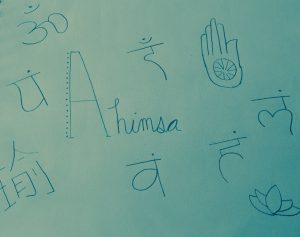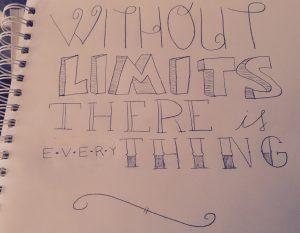 It's easy to feel pulled in too many directions. Living in the Western world and studying mind/body modalities from an Eastern perspective can often feel like a tug of war. The Western culture is often focused on the pursuit of attainment while the East accentuates “letting go.”
It's easy to feel pulled in too many directions. Living in the Western world and studying mind/body modalities from an Eastern perspective can often feel like a tug of war. The Western culture is often focused on the pursuit of attainment while the East accentuates “letting go.”
As I grew up in the late 60s and 1970s, gender equality was in full mode with the Equal Pay Act evolving and Title IX providing access to higher education, career, sports and more. Females joined the male revolution with society stressing the importance of obtaining more. I was young at the time and didn’t comprehend this new development. My Dad was excellent in making sure I was treated as any boy would be. I cut and hauled wood, understood the ins and outs of a car engine, raced go-carts and knew how to take care of myself. I have fond memories (at least now) of popping the hood in our 1958 Apache truck and using a screw driver to start it when the distributor cap was wet! I appreciate my parents being ahead of their time and always supporting me in all my endeavors. Although this was a great way to grow up and I have personally taken advantage of the freedom to achieve and continue learning, it’s easy to get entangled into wanting more and falling into the pool of perfectionism.
Over the years, I have heard different individuals correlate their happiness with things or titles. Unfortunately, this illusion can lead to overflowing attics with stuff that will never be touched again, comparing ourselves to others and burning the candle at both ends to catch up. It’s easy to fall into the watery depths of negative self-talk and believe that the next big thing will bring us what we desire. It reminds me of a quote by Buddha that I discovered when I was training in cognitive behavior therapy - We are shaped by our thoughts. We become what we think. There is so much truth in these few words. Going back to my childhood, I realize that the old rhyme we use to say - Sticks and stones may break my bones, but words will never hurt me – is not accurate. Words do hurt. Especially the words we say to ourselves.

In the yogic world, I’m reminded of the Yamas and Niyamas which are the guidelines or philosophy of yoga. Ahimsa is part of this system and is at the very core of the practice. It emphasizes the restraint of any violence or negative urges to harm another. What about the harm we may cause ourselves through negative thinking/self-talk? We would never tell another person the negative words we tell ourselves or think about ourselves, would we? How do we practice ahimsa (kindness) with ourselves?

First, recognize that negative thoughts are taking place. Take a few deep breaths. This is where a meditation practice comes in handy. Second, without judgment, simply identify the event or situation that triggered it. Third, determine the negative belief or thought that evolved? Fourth, recognize the consequence or impact from this situation and negative talk. Do you feel sad, angry, anxious or some other emotion? Last but not least, how can you dispute your unreasonable or negative thoughts? Here are some questions to assist.
• Do you have evidence to support your thoughts?
• How would an outside person see this situation?
• If a friend explained this as their own story, would you see it differently?
• Does your behavior/thoughts assist you or hinder you from getting what you want?
• Are you being realistic?
• Are you overgeneralizing (see this one negative situation as an endless pattern of defeat)?
• Are you looking at the whole picture?
• What can you do to change this situation?

Be disciplined in these five steps to restructuring your behavior and nurturing self-ahimsa. It won’t happen overnight, but it will get easier with practice. You will begin to listen to your own inner wisdom and find balance within. If negativity flows into the crevices of your racing mind before you have a chance to stop it, forgive yourself and let it go. Replace negative self-talk with acceptance, compassion, encouragement and contentment. The word Santosha is Sanskrit (ancient language of India). It means to be content or satisfied with, accepting, joyful and at peace. This beautiful term challenges us to find peace in the moment, accepting what is. It’s the ability to look inward for a sense of completion knowing that we already have everything we need.


2 Comments
What wonderful words of wisdom and (self) compassion, Celeste! As a recovering perfectionist, I appreciate the reminder to be as kind with myself as I would be with a friend - it is especially timely for me right now.
I also love your stories about your upbringing, particularly about starting the 1958 Apache! With them, you also demonstrate another tool that helps me to be more compassionate with myself: humor. 😉
Thanks again for an excellent post - one I have bookmarked, and will be returning to when I need a boost of self-kindness!
Jan, I always love your comments and appreciate your kindness. Glad you enjoyed the 1958 Apache Chevrolet story. I miss that old truck!